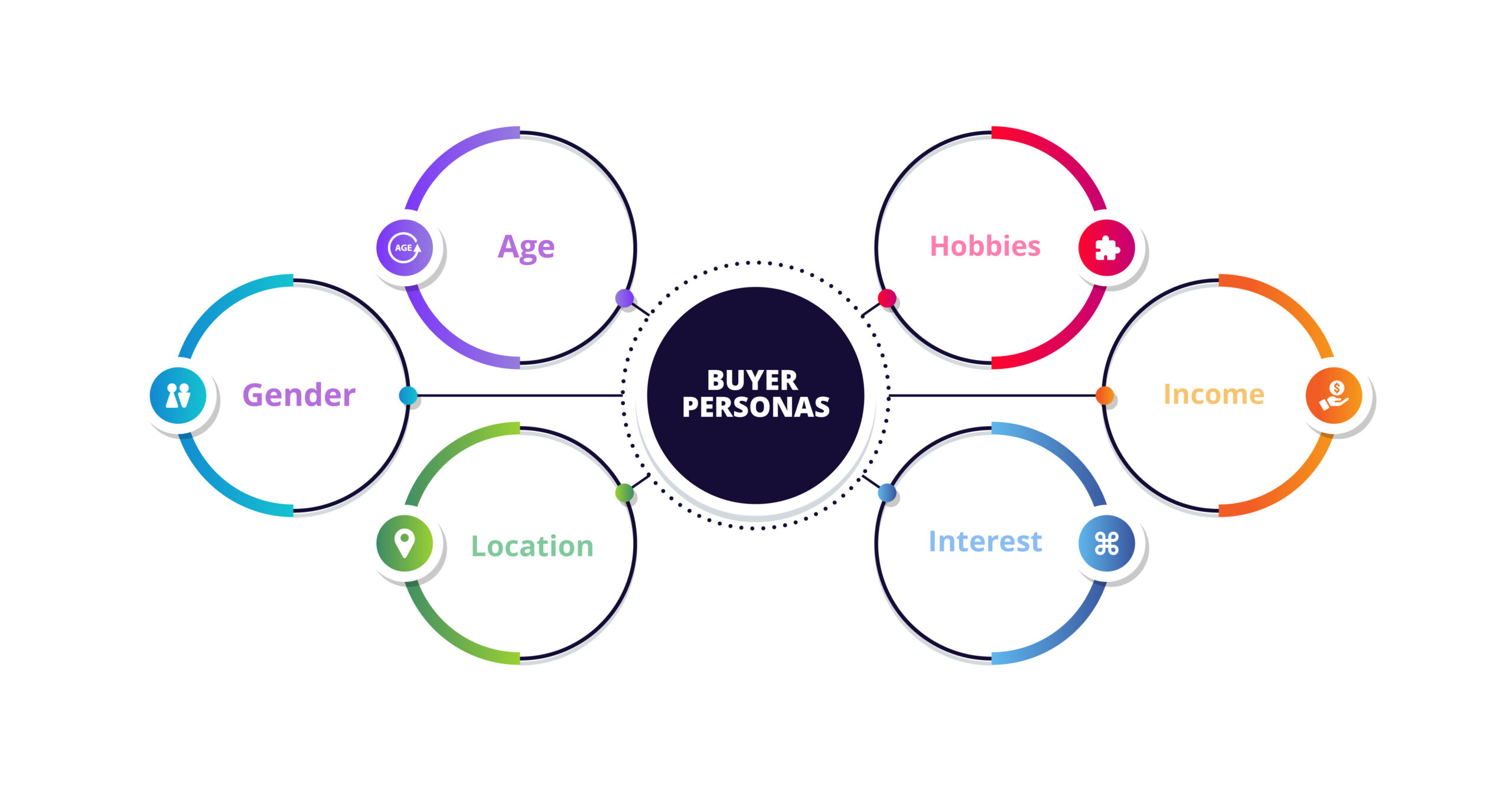The term Buyer Persona gets tossed around a lot in the marketing world, especially if you engage in Inbound Marketing strategies for eCommerce and SEO. But what exactly is a Buyer’s Persona?
More than just a demographic: Buyer Personas
Simply put, it’s a semi-fictional representation of your real-life buyer or the target market you wish to cater to. Also known as customer or marketing personas, buyer personas constitute a detailed profile of your buyer that includes their age, sex, location, marital status, job, buying preferences, wants, needs, and many more things; even a fictional name! All this is compiled after meticulous research, of course.
In today’s turbulent times, the narrower and detailed your persona is, the better. For example, the old way of defining your target market would be something like ‘females aged 15-30’. But that just won’t work anymore as this demographic is too vast. The advertisement strategies used when reaching out to a 15-year old school student would be different from those deployed to attract a 22-year old fresher or a 30-year old married individual. So they cannot be grouped into a single category. Thus the need arises for specific buyer personas.
Why are they important though?
Coming to the million-dollar question now, why should you care about buyer personas? Here’s why:
1. Differentiate buyer segments:
The product or service you’re offering may be catering to a wide variety of people, but the same marketing strategy will not work for everyone. Buyer personas will narrow down your demographic to a specific set of people so you can tailor your marketing towards them. This is why it’s preferable to create multiple buyer personas to differentiate all your buyer segments.
2. Understanding your customers:
By creating buyer profiles you will be more knowledgeable about the buying history and preferences of your customers, the challenges they face, and the things that hold their attention etc. On further evaluation of these goals and desires, you’ll have a better understanding of what they are looking for from your business and what info or answers they are hoping to find online.
3. Targeted Content:
Once you understand your personas’ needs, wants, challenges, goals, you can better determine what kind of content is going to appeal to them. Because you know their values, you can strategize about how to create content that reflects those values. You can also think about what channels of advertisement are the most effective in order to reach your ideal audience.
4. Create stronger relations:
Knowing who your customers are can help you create better marketing and sales strategies and ultimately build better relationships with them. Content can be relevant and strategic to your audience and market, and when you tailor your sales strategy to the needs of your ideal customers, you’ll be able to build trust in your brand and maintain long-lasting relationships with your consumers.
Does it work though?
Let’s talk real for a moment. Does optimizing your content and marketing strategies according to a fictitious profile actually lead to tangible results?
Yes, for sure. When you reach out to folks you know will be receptive to your message, the likelihood of generating more quality leads goes up dramatically. Cloud automation company Skytap recently implemented a targeted content marketing strategy based on buyer personas and witnessed a 124% increase in sales leads and a 55% increase in organic search traffic.
How you can use your Buyer Personas to maximize ROI
Okay, so Buyer Personas can definitely improve your business. But that statement only holds true if you fully understand your personas and use that knowledge effectively to change your strategies. Here are some pointers on how you can go about with that:
- When building a buyer persona, ask important and relevant questions. For a better understanding of the motives, objections, and goals of your buyer personas, try thinking of their lives from their point of view, not just their demographics. Keep testing your assumptions and updating your personas.
- Once a strong buyer persona is created, your marketing team can increase relevance, assure connection and foster strong brand messaging through the formulation of laser-focused and efficient strategies that will certainly help increase your ROI. Moreover, you can also humanize your company and communicate better with your ideal customer.
- While developing products, use personas to help identify the changes that will benefit your customers most and prioritize them, thus enabling you to create a better product roadmap.
- Customers feel good when they receive personalized content. So, it’s important to send stuff that’s relevant and is based on their interests. But if you keep offering the same information, your click rate will suffer and you’ll lose value. With buyer personas, you can target your audience in the right way through personalization and segmentation.
- Provide customer support teams with personas so they’re able to better understand the person they are trying to help. With a better understanding of the other individual, conversations can be more empathetic which can go a long way in building strong customer relations.
Personas provide remarkable insight and structure to your marketing campaigns. Your team will be able to determine where to focus its efforts, guide product development, and allow alignment across the organization when you develop a detailed buyer persona. This will increase interest in your brand, produce better quality leads, and result in more sales being closed along with an obvious better return on your investment.
Also Read: New Trends to look for eCommerce SEO in 2021


